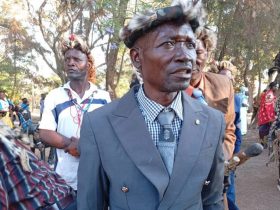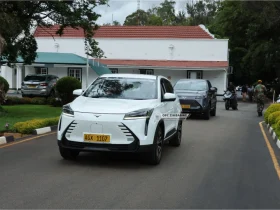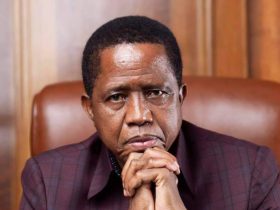By Ernest Kaonga
Malawi has finally taken a step that history will remember — the decision to make secondary education free from January 2026. Critics call it reckless. Realists call it revolutionary. And if the lessons from Ghana, Sierra Leone, Kenya, and Zambia are anything to go by, this is the single most transformative policy the country could ever take for its future.
For too long, poverty has been Malawi’s invisible wall — not of concrete, but of cost. For decades, millions of bright children have dropped out after primary school simply because their parents could not afford fees. In a country where over half of the population lives on less than two dollars a day, the difference between schooling and child labour often comes down to a few thousand kwacha in school fees. By abolishing these fees, Malawi has declared war on the cycle of poverty itself.
This decision does not stand in isolation. Across Africa, free secondary education has been the defining social revolution of the 21st century. Ghana led the charge in 2017 with its Free Senior High School policy — scrapping all tuition, exam, and boarding fees and even feeding students. Within a single year, over 400,000 additional students entered senior high school. Sierra Leone followed suit with its Free Quality School Education program in 2018, later enshrined in law in 2023. The result? Enrollment leapt from 2 million to 3.1 million students in just three years.
Zambia joined the movement in 2022, eliminating all fees through Grade 12 and doubling school grants to keep classrooms afloat. The surge in access was immediate — a flood of young people previously locked out of education finally walked through the school gate.
Malawi is now standing shoulder to shoulder with these reformers. The timing is right — and the stakes are higher than ever.
The Economics of Access
Education is not an expense; it is an investment with the highest possible return. Studies by UNESCO and the World Bank show that every extra year of schooling increases individual earnings by 10% and national GDP by up to 0.37%. Countries that made education universally accessible, like Rwanda and Kenya, saw dramatic jumps in transition rates from primary to secondary — from 83% to 95% in Kenya, for example, after tuition was scrapped. Malawi’s youth bulge — over 60% of the population is under 25 — makes free secondary schooling not just a moral imperative but an economic necessity.
By expanding access, Malawi is unlocking the productivity of millions who might otherwise remain trapped in informal labour. A better-educated generation means a stronger workforce, lower crime, higher civic participation, and greater innovation. The ripple effects extend far beyond classrooms: when girls stay in school longer, early marriages and teenage pregnancies drop. Every kwacha invested in education today saves thousands in social and healthcare costs tomorrow.
Learning from Africa’s Reformers
Of course, critics warn that Malawi’s already overburdened system — where teacher-pupil ratios can reach 1:100 — may collapse under the weight of new enrolments. But this challenge is not unique, nor is it insurmountable. Ghana faced similar fears in 2017, yet managed to recruit teachers, expand infrastructure, and stabilize its program within three years. Zambia has already hired 30,000 new teachers to cope with demand.
The lesson from these nations is clear: quality challenges are not a reason to halt reform — they are a reason to fund it properly. Malawi must now channel resources into recruiting and training teachers, building classrooms, and providing textbooks and digital learning tools. What matters is political will. Free education without follow-through is symbolism; free education backed by investment is transformation.
The Moral Imperative
Free secondary education is more than policy. It is justice. It is the state fulfilling its duty to level the playing field between the privileged and the poor. Morocco, Namibia, and Sierra Leone went further — making free education a constitutional right. Malawi’s move, while administrative for now, lays the foundation for that same legal guarantee. It tells every child born in Chitipa, Mchinji, or Nsanje that their destiny will no longer be determined by their parents’ income.
Malawi cannot compete in the global economy with an uneducated generation. The 21st century belongs to nations that equip their citizens with knowledge, notexcuses. And this decision — bold, ambitious, and disruptive — signals that Malawi is ready to join that race.
Conclusion: The Right Step, The Hard Work Ahead
Yes, there will be growing pains — overcrowded classrooms, overworked teachers, scarce resources. But the alternative — keeping millions of young Malawians locked out of secondary school — is far worse. Ghana, Sierra Leone, and Zambia proved that free education ignites progress. Malawi is now writing its own chapter in that story.
This is not just a policy shift. It is a statement of national belief — that every Malawian child deserves a fair start in life. If properly implemented, it will be the most consequential act of social justice since the introduction of free primary education in 1994.
Free secondary education is not charity. It is common sense. It is nation-building. And for Malawi, it is long overdue.











Leave a Reply